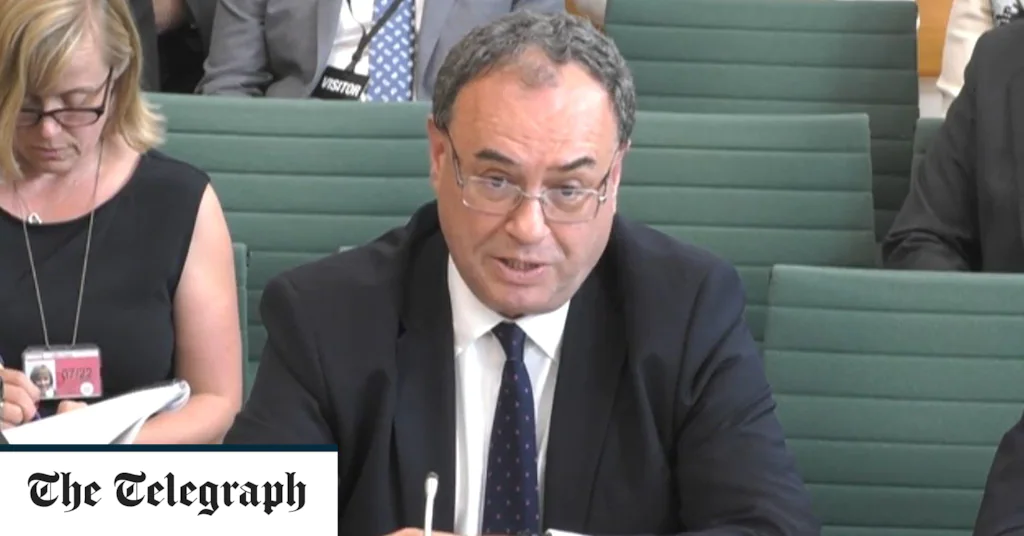[ad_1]
The series of shocks to inflation are so severe that a Cabinet minister criticised the Bank over the weekend for failing in its “one job – to keep inflation at around 2pc”.
Another cabinet minister told The Telegraph that Government figures are “now questioning its independence”.
Mr Bailey hit back that the Bank’s independence and the trust placed in it to bring inflation back down are vital at a time of rampant price rises.
He said: “This is the biggest test of the monetary policy framework that we have had in its 25 years.
“What I would say to these people is, this is when the independence of the Bank and the target framework and the nominal anchor matter more than ever – more than in the easy times.”
He implied that he would be prepared to raise rates to control inflation even if that led to a recession, saying: “We have to get [inflation] back to target. And that is clear.”
Mr Bailey suggested that he does not expect higher rates to trigger a house price crash, arguing that growth is likely to cool as the crisis bites but a “structural” shortage of properties will prevent a plunge.
Sir Dave Ramsden, a deputy governor at the Bank, said that it was hard to disentangle the impact that a post-Brexit labour shortage has had on inflation, given that data suggests the European Union and US are both dealing with similar price surges and many countries are suffering more than the UK. Mr Bailey added that he still believes Brexit will have a negative impact on trade over the longer term.
Meanwhile, the Confederation of British Industry called on the Chancellor to step in with extra help for poor households and for struggling companies.
Tony Danker, the business group’s director general said it is crucial “to help people facing real hardship now; it’s the moral underpinning of our economy and society”.
“Putting pounds in the pockets of people struggling the most should not be delayed,” he said, adding that it is also vital to “start stimulating business investment now”, potentially by extending the Recovery Loan Scheme to help businesses get back on track after the pandemic and now the energy price shock.
[ad_2]
Image and article originally from www.telegraph.co.uk. Read the original article here.

